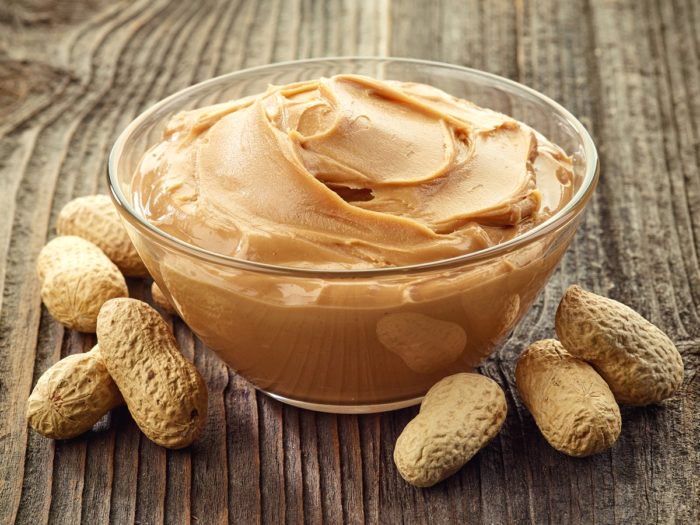Agribusiness
See 11 things Peanut Butter can do
Published
8 years agoon
By
Publisher
The health benefits of peanut butter include a reduced risk of diabetes, heart diseases, cancer, degenerative nerve diseases, and control of Alzheimer’s disease. It also helps in decreasing hypertension and the risk of contracting viral and fungal infections.
Peanut butter is a paste made from dry, roasted peanuts. This paste is generally used as a spread on toast or sandwiches. It is a healthy food that is full of nutrients such as proteins, carbohydrates, monounsaturated fatty acids, folate, niacin, pantothenic acid, pyridoxine, riboflavin, thiamin, vitamin E, vitamin C, vitamin A, sodium, magnesium, calcium, manganese, phosphorous, selenium, copper, iron, and zinc.
Peanuts, a type of ground nuts, belong to the family of Fabaceae and species of Arachis hypogaea. The plant itself is small in which the branch of the flower touches the ground and grows underneath. The plant is thought to have originated in the American continent and through Spanish travelers, it was spread all over the world. Unlike costly nuts such as cashew nuts, pistachio nuts, almonds, and walnuts, peanuts are low-cost nuts that offer similar benefits.
Interesting Facts about Peanuts and Peanut Butter
Peanut butter comes in two popular varieties. One is a creamy variety and the other is crunchy. While women and children generally love the creamy variety, men prefer the crunchy variety.
The first commercial preparation of peanut butter was in the United States in 1884.
According to an estimate by Kansas State University, the amount of peanut butter consumed by the United States alone in one year is enough to spread across the floor of Grand Canyon.
There are 10 peanut holidays observed in the United States.
Thomas Jefferson and Jimmy Carter, who were both elected Presidents of United States, were initially peanut farmers.
Nutrition Facts About Peanuts & Peanut Butter
People who consume peanuts and peanut products on a regular basis have an overall higher intake of protein, fats (polyunsaturated and monounsaturated), fiber, vitamins A and E, folate, calcium, magnesium, zinc, iron, potassium, and many other nutrients. Peanuts contain no saturated fats and can be consumed on a regular basis. They only contain unsaturated fats. This is good news for people who fear to gain weight by consuming peanuts. Peanuts actually help you to lose weight!
Health Benefits Of Peanut Butter
Apart from its great taste, peanut butter has vital nutrients that are essential for the body. The health benefits of this tasty butter include the following:
Rich Source of Protein
Peanut butter (100 grams) contains a high amount of protein (25 – 30 grams). Proteins that we eat are broken down into amino acids, which are then utilized in each and every cell for repairing and building the body.
Lowers Cholesterol Levels
The fat content in peanut butter is almost equal to that of the fats found in olive oil. It contains both polyunsaturated fats and monounsaturated fats. As these fats are not saturated, they are good to consume without putting the heart at any risk. The unsaturated fats in peanut butter help to lower bad cholesterol levels (low-density lipoprotein) and promote the circulation of good cholesterol (high-density lipoprotein).
Prevents Type II Diabetes
Consuming peanut butter can also be beneficial in reducing the risk of type II diabetes. Peanuts contain not only protein but also unsaturated fats. Unsaturated fats have been noted to improve insulin sensitivity. Research into peanut butter consumption and diabetes showed that a higher intake of peanut butter and other nuts lowers the risk of type II diabetes.
 Good Source of Vitamins
Good Source of Vitamins
Peanut butter contains many vitamins that are good for our body to function properly. Vitamin A found in it is helpful for eyesight, while vitamin C helps to boost the immune system and heals simple ulcers faster. On the other hand, the vitamin E found in peanut butter is a very important micronutrient needed by our body to dissolve complex fatty acid structures and fat blockages in the arteries.
Antioxidant Properties
Peanut butter contains antioxidant properties due to the presence of folate, niacin, pantothenic acid, pyridoxine, riboflavin, and thiamin. One of the antioxidants found in it is resveratrol. Resveratrol is a polyphenolic antioxidant which has been found to be effective in controlling certain types of cancers, heart disease, Alzheimer’s disease, viral and/or fungal infections, and degenerative nerve diseases.peanutbutterinfo
ALSO SEE: 9 Amazing Benefits of Organic Food
Prevents Cancer
Peanut butter contains B-sitosterol, a phytosterol that has a great property of fighting against cancer, particularly colon, prostate, and breast cancers. Peanuts and its products, such as peanut oil and peanut butter are ideal sources of phytosterols.
Regulates Blood Sugar Levels
Peanut butter is a good source of magnesium (170mg/100 grams). This makes up for 42% of the daily recommended value of magnesium. Magnesium has an important role to play in muscle, bone, and immunity development in the body. Magnesium also helps in regulating blood sugar levels and blood pressure. Its presence in our body helps in more than 300 biochemical reactions that are extremely important for our survival.
High in Potassium
Peanut butter contains potassium (70 mg/100g) that acts as an electrolyte and is a fluid-balancing element in the body. In comparison to sodium, which directly puts pressure on the cardiovascular system in the form of hypertension, potassium does not put any pressure either on the blood or on the cardiovascular system. In effect, potassium is a heart-friendly element that is found in high quantities in peanut butter.
Reduce Risk of Gallstones
Gallstones, a major health risk in developed countries, is caused by being overweight, crash diets, certain types of cholesterol drugs, and birth control pills. A study on peanuts and nut consumption relating to the risk of gallstones was undertaken and the results of the study showed that over a period of 2 decades, women who consumed peanut butter and nuts on a regular basis had reduced their risk of developing gallstones.
Rich in Dietary Fiber
Peanuts and peanut butter are both high in dietary fiber. One cup or approximately 125 g of peanuts and peanut butter has 12 g and 20 g of dietary fiber, respectively. Dietary fiber is one of the most important parts of our diet since a lack of dietary fiber can lead to several health problems and diseases such as constipation, diabetes, cholesterol, and various heart diseases.
Word of Caution: Peanut allergies are one of the major risks associated with peanut butter, according to a survey conducted in the United States.
The symptoms of the allergy include vomiting, diarrhea, abdominal pain, anaphylaxis, asthma, and angioedema. If untreated, the anaphylactic shock can be fatal. According to the study, about 3 million Americans are presently affected by peanut and tree nut allergy.
- Culled from www.organicfacts.net
You may like


Constellation CEO Dominguez calls for domestic AI investment


Cole Palmer left out of Chelsea’s Europa conference league squad


Donald Trump: A Controversial figure in American Valor


Oyo APC chairman dies in US


Ecuador into Copa quarters after Mexico stalemate


TikTok unveils youth council to enhance safety features for teens
Trending

 Entertainment5 days ago
Entertainment5 days agoSimi addresses resurfaced 2012 tweets amid online backlash

 Health1 week ago
Health1 week agoSCFN, LUTH introduce bone marrow transplants as curative treatment for sickle cell

 Health4 days ago
Health4 days agoDeclassified CIA memo explored concealing mind-control drugs in vaccines

 Football1 week ago
Football1 week agoHarry Kane nets brace as Bayern edge Frankfurt 3–2 to go nine points clear

 Football1 week ago
Football1 week agoLate Flemming header stuns Chelsea as Burnley snatch 1–1 draw at Stamford Bridge

 Crime4 days ago
Crime4 days agoSenior police officers faces retirement after Disu’s appointment as acting IGP

 Education6 days ago
Education6 days agoPeter Obi urges JAMB to address registration challenges ahead of exams

 Crime1 week ago
Crime1 week agoTwo killed, seven injured in early-morning shooting in Richmond’s Shockoe Bottom

